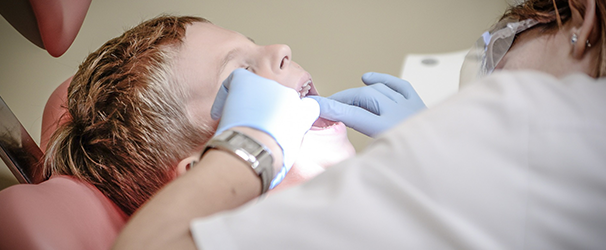Dental access rates for young children
 There is a widespread misunderstanding of the importance of taking children to the dentist before their first birthday. Our findings emphasise the importance of initiatives to encourage parents and carers to take young children to the dentist.
There is a widespread misunderstanding of the importance of taking children to the dentist before their first birthday. Our findings emphasise the importance of initiatives to encourage parents and carers to take young children to the dentist.
Executive summary
- Researchers at Birmingham have analysed NHS dental data to look at rates of dental attendance by very young children, finding that these were very low – only 3% of children had visited a dentist before their first birthday and only 12% by their second.
- Surprisingly, the rates were low even for relatively affluent areas.
- This suggests that there is a widespread misunderstanding of the importance of taking children to the dentist before their first birthday. Our findings emphasise how important are initiatives to encourage all parents and carers to take their children to the dentist. Initiatives such as Starting Well are also likely to be important to help children at high risk of dental disease.
Background
Despite significant reductions in levels of tooth decay in England over the past 40 years, the proportion of children suffering this preventable disease remains high with a quarter of five-year-old children in England overall and a third of children in the North West (Public Health England 2019).
There is good scientific evidence that public health measures such as water fluoridation and supervised tooth brushing can reduce levels of tooth decay at a population level. Children should also be taken to the dentist so that they can receive personalised prevention and their parents/carers can be supported in keeping their children’s teeth free of decay. Children from deprived communities are less likely to be taken to the dentist, even though they are at higher risk of decay.
There is a national ambition to ensure all children visit a dentist before their first birthday and an initiative called Dental Check By One was launched by the British Society of Paediatric Dentistry in 2017 which has been endorsed by the Chief Dental Officer.
Academic(s)
Candy Salomon-Ibarra, Vahid Ravaghi, Kirsty Hill, Colwyn Jones, David Landes and Alexander Morris.
Download the full briefing
Contact us